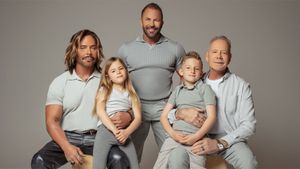Most of the world doesn't think their country is a good place for gay and lesbian people — but the divide is getting smaller.
A median of just 39 percent of people from over 120 countries said that their city or area was a good place for gay and lesbian people, according to a new survey from Gallup, compared to 45 percent who said it was not. Still, this is up considerably from when Gallup first began tracking attitudes in 2007, when 23 percent said their country was good and 55 percent said it was not.
Countries whose population saw them as good for gay and lesbian people at the highest rates were Iceland (93 percent), the Netherlands (90 percent), Belgium, (90 percent), Sweden (90 percent), Norway (89 percent), Spain (89 percent), Finland (85 percent), Australia (84 percent), New Zealand (83 percent), and the United States (83 percent). All of these countries have legalized marriage equality.
Countries with the lowest rates included Ghana (6 percent), Kazakhstan (6 percent), Kosovo (6 percent), Kyrgyzstan (6 percent), Lebanon (5 percent), Azerbaijan (4 percent), Armenia (3 percent), Malawi (3 percent), Gambia (2 percent), and Senegal (2 percent). Half of the bottom ten countries have criminalized same-sex sexual relations.
Across 80 countries where same-sex relationships are legal, a median of 46 percent viewed their areas as good places for gay and lesbian people, up from 32 percent in 2007. In contrast, no change occurred in 24 countries where same-sex relationships remain illegal, where a median of only 11 percent said their area was a good place for gay or lesbian individuals in 2024, unchanged from 2007. These findings "underscore the link between legal recognition and social attitudes," according to the report.
"While legal protections can influence social norms and help reduce stigma, they also reflect broader societal shifts," it states. "At the same time, the lack of change in countries where same-sex relationships remain illegal highlights persistent inequalities in the treatment of gay and lesbian people globally."










































































